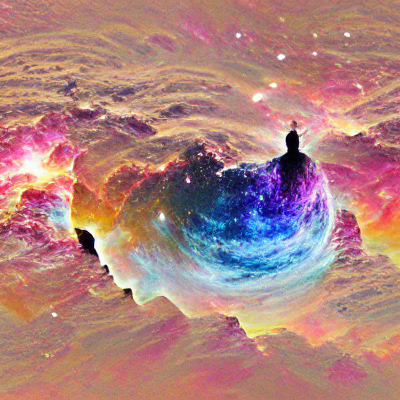
Atheists in the name of science often claim that the only facts we can rely on are those proven by science as hard core fact. Indeed science does have some bold claims to made where observation is consistently the same given the same circumstances. This repetitiveness allows science to deduct some reliable laws that is predictable and testable. When the predicted behaviour does not take place the scientist will look at depth into the anomaly to try and understand what violated the laws that was suppose to take place. Anything that does not submit to this scrutiny is categorised as pseudoscience and discarded at best with suspicion.
By all means the rigidity and constancy of true science must be regarded with great respect because science has lead human beings out of the dark ages to real insight in the universe and its natural laws. However, it will be a grave mistake to put science on a pedestal where it is untouchable and above reproach by other sciences. Science is not above other sciences to the degree that its reasoning is faultless. Science can describe a result and even predict an outcome but science always make a deduction as to the reason why a certain outcome is obtained. That deduction is a thought process and can be wrong. The reliability and predictability of an outcome under given circumstances does not imply the reasons for the outcome is correct. The reasoning might be sound but cannot claim to be irrefutable. If anybody showed this to be incorrect then it is science itself that has time and time again refuted an explanation by its own scientific processes. The end result is an ever increased refinement of the conclusions drawn and better hypothesis of explanation put forward for consideration.
The mistake so often made, by those who looked dogmatically at science, is to shun anything that is not the product of scientific certainty. Other sciences relies on trends and statistics to make broad statements of truth that can be tested within a margin of error. A comment that 90% people in South Africa love to eat pork can be tested through surveys and it can be confirmed if similar results of the same order is found. Science has taken a step to accept and even use such methods in other areas like social sciences to make deductions.
However there is a category that science is correctly sceptical over. This is the space of personal experience where data is not easily repeatable. When we have to rely on anecdotal evidence then we are in a grey field where it is difficult to interpret results. Anecdotal evidence are subjective filters that are inherent to the thought processes of humans. One person will perceive God as an intelligent human like entity with whom he has an intimate and personal relationship while another will perceive God as pervasive throughout the universe as an intelligent and abstract first cause. Both can claim their right to accuracy with full confidence of relying on their own experience. Science looks at this unpredictability and the often conflicting outcomes and rejects personal experience in totality as a basis for any conclusion.
Yet, it will be a grave misjudgement to simply ignore all experiences that are of a personal nature because a large part of our human perception of existence is embedded in this experience of subjective filtering. Given the shared experience people witness of, it seems that the filters are not by default wrong but simply that they give different interpretation to the similar experiences. If anything it is important that humanity explore with deep concentration these experiences and the filters we use to interpret those experiences because they are as valid input as the observation of a natural law playing itself in nature.
I claim therefore that science has a serious blind spot if science ignores anecdotal evidence completely. Yes, it must be looked at with intense questioning mind but also with an acute curiosity. Our experiences of a world not connected to a material world and its laws, which we call the spiritual world, deserve to be acknowledged even if it is with caution. A pure scientific focus on the material world denies life, love and values for none is purely material. Each individual must be encourage to employ tools and techniques to explore their inner world and to test conclusions, rather than be dogmatically told to take certain interpretation by blind faith. Each individual can by right claim a view on the truth and develop an inner process of refining that personal truth without making it a ideology that all must abide with.





